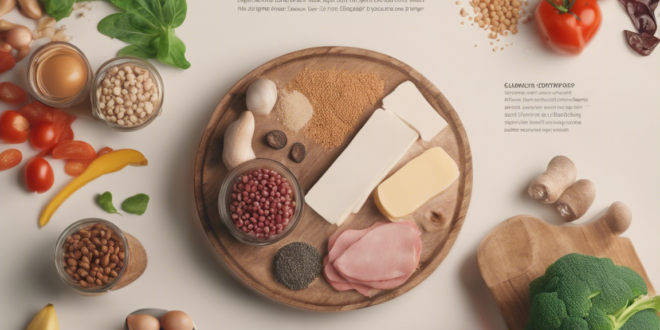Vegan Protein Sources: A Comprehensive Guide to Plant-Based Nutrition
In recent years, the plant-based diet has transformed from a niche lifestyle choice to a mainstream nutritional approach. One of the most common concerns for those considering a vegan diet is obtaining adequate protein. Contrary to popular belief, plant-based diets can provide all the essential proteins needed for optimal health, performance, and muscle maintenance.
Understanding Protein Basics
Protein is a crucial macronutrient responsible for building and repairing tissues, creating enzymes and hormones, and supporting overall bodily functions. While many people associate protein exclusively with animal products, plant-based sources offer equally impressive nutritional profiles.
Top Vegan Protein Powerhouses
1. Legumes: The Protein Champions
Beans, lentils, and chickpeas are nutritional superstars in the vegan protein world. A single cup of cooked lentils provides approximately 18 grams of protein, making them an excellent dietary staple. Black beans, kidney beans, and garbanzo beans offer similar protein-rich benefits, alongside essential fiber and minerals.
2. Quinoa: The Complete Protein
Unlike most plant proteins, quinoa is a complete protein, containing all nine essential amino acids. With 8 grams of protein per cup, quinoa serves as an versatile grain alternative that can be used in salads, bowls, and as a rice substitute.
3. Tofu and Tempeh: Soy-Based Protein Sources
Derived from soybeans, tofu and tempeh are protein-dense foods that can be prepared in countless ways. Firm tofu contains approximately 10 grams of protein per half-cup, while tempeh offers an impressive 15 grams per serving.
Protein-Rich Nuts and Seeds
Nuts and seeds are compact protein sources that can easily be incorporated into various meals. Almonds provide 6 grams of protein per ounce, while chia seeds offer 4 grams per two tablespoons. Hemp seeds are particularly noteworthy, delivering 10 grams of protein per three-tablespoon serving.
Protein Supplements for Vegans
For those seeking additional protein intake, plant-based protein powders have become increasingly sophisticated. Pea protein, brown rice protein, and hemp protein powders offer concentrated protein sources without animal derivatives. These supplements are particularly beneficial for athletes, fitness enthusiasts, and individuals with higher protein requirements.
Meal Planning Strategies
Creating balanced, protein-rich vegan meals requires strategic planning. Combining different plant proteins ensures a complete amino acid profile. For instance, pairing rice with beans creates a complementary protein combination that rivals animal protein sources.
Nutritional Considerations
While plant proteins offer numerous health benefits, it’s essential to consume a varied diet. Some plant proteins may have lower bioavailability compared to animal proteins, so diversity is key. Consuming a wide range of protein sources helps ensure comprehensive nutritional intake.
Health Benefits of Plant-Based Proteins
Vegan protein sources offer additional health advantages beyond protein content. They’re typically lower in saturated fats, higher in fiber, and rich in antioxidants. Studies have linked plant-based diets to reduced risks of heart disease, improved metabolic health, and enhanced weight management.
Practical Tips for Increasing Protein Intake
– Add protein-rich seeds to morning smoothies
– Use nutritional yeast as a cheese-like topping
– Incorporate protein-dense grains into salads and bowls
– Experiment with plant-based protein powders
– Explore international cuisines that naturally feature protein-rich ingredients
Common Myths Debunked
Myth: Vegan diets lack sufficient protein.
Reality: With proper planning, vegan diets can meet and exceed protein requirements for all activity levels, from sedentary individuals to professional athletes.
Conclusion
Embracing plant-based protein sources offers a nutritious, sustainable, and delicious approach to meeting dietary protein needs. By understanding various protein sources and implementing strategic meal planning, individuals can thrive on a vegan diet while enjoying diverse, nutrient-dense foods.
Final Recommendations
Consult a registered dietitian or nutritionist when transitioning to a vegan diet to ensure personalized nutritional guidance. Every individual’s protein requirements vary based on age, weight, activity level, and overall health status.
 Good Calories Guide GoodCalories Guide focuses on nutrition, healthy eating, and overall wellness. The site offers practical insights into evidence-based dietary practices, including tips for specific lifestyles such as veganism, keto, and family-friendly meal planning. It also addresses unique nutritional needs for individuals with conditions like diabetes or food allergies, while providing quick and accessible recipes to make healthy living a sustainable and enjoyable choice.
Good Calories Guide GoodCalories Guide focuses on nutrition, healthy eating, and overall wellness. The site offers practical insights into evidence-based dietary practices, including tips for specific lifestyles such as veganism, keto, and family-friendly meal planning. It also addresses unique nutritional needs for individuals with conditions like diabetes or food allergies, while providing quick and accessible recipes to make healthy living a sustainable and enjoyable choice.


